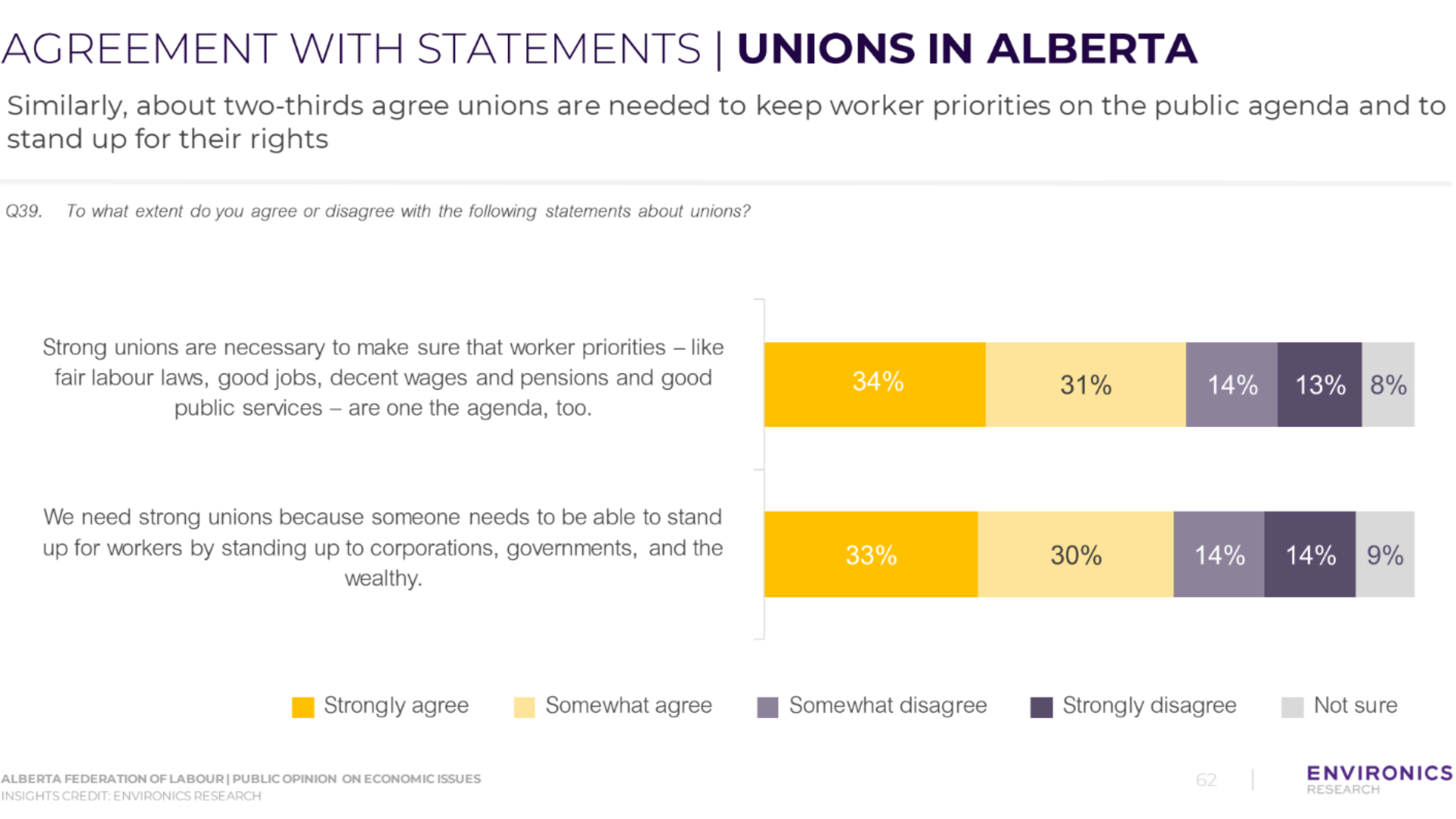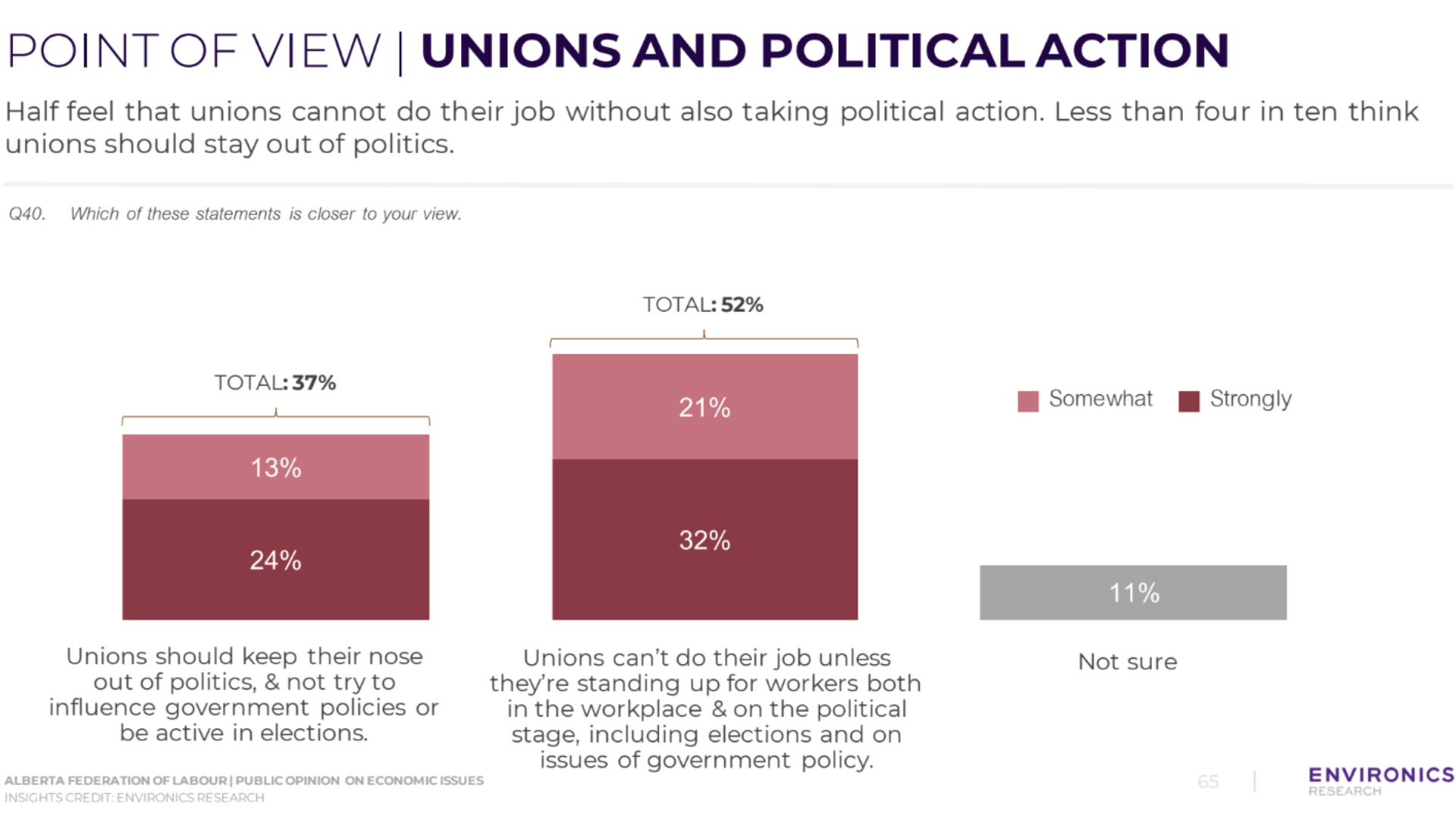New poll shows that most Albertans think unions play a vital role in society
The Alberta Federation of Labour (AFL) has commissioned a poll exploring Albertans’ attitudes on inflation, the cost of living and other issues. This is the second installment in a five-part blog series that summarizes the results.
The loudest voices in Alberta are often anti-union voices. That has led many people to conclude that Alberta is an anti-union province.
But a new poll conducted for the Alberta Federation of Labour by Environics, a highly respected national polling firm, suggests that unions are more popular in Alberta than many think.
65 per cent of Albertans agree that, without unions, employers would have too much power and workers would get less than they need and deserve, in terms of wages, benefits and protections in the workplace.

A similar percentage of Albertans (64 per cent) agree that unions are a necessary counterbalance to the power of corporations, governments and the wealthy.
Again, about two-thirds of Albertans (65 per cent) agree that unions are necessary to make sure that worker priorities – like fair labour laws, good jobs, decent wages and pensions and good public services – are on the agenda, too.

Even on the more emotionally charged question of union involvement in politics, a majority of Albertans (52 per cent) agree that unions can’t do their jobs unless they stand up for workers in both in the workplace AND on the political stage, including during elections and on issues of government policy. A minority (37 per cent) disagree with that statement.

The bottom line is that unions are more popular among Albertans than the conventional wisdom might suggest. The majority of Albertans understand that it is often necessary to stand up to corporations, governments, and the wealthy – and they’re glad to have unions on their side and in their corner.
The Alberta Federation of Labour commissioned Environics Research to conduct an online panel-based survey of 1,002 Albertans, 18 years of age and over. The survey was conducted between March 27 and April 10, 2024, and the survey data was weighted by region, age cohort, gender and past provincial vote to match census and electoral data. Since this was not a random probability-based sample, a margin of error cannot be calculated. The margin of error for a comparable probability-based random sample of the same size is +/- 3.2%, 19 times out of 20.

